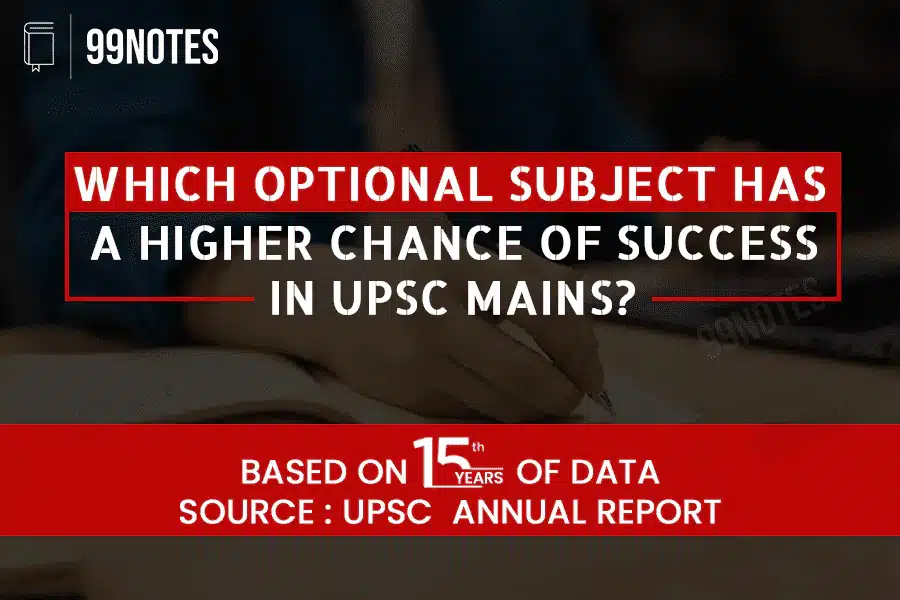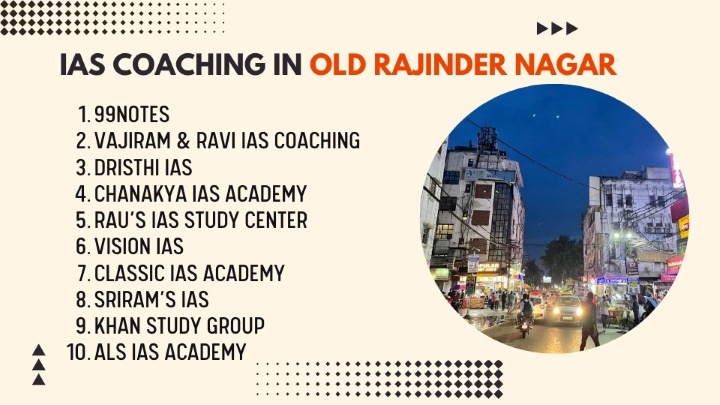Which optional subject has a higher chance of Success in UPSC Mains?
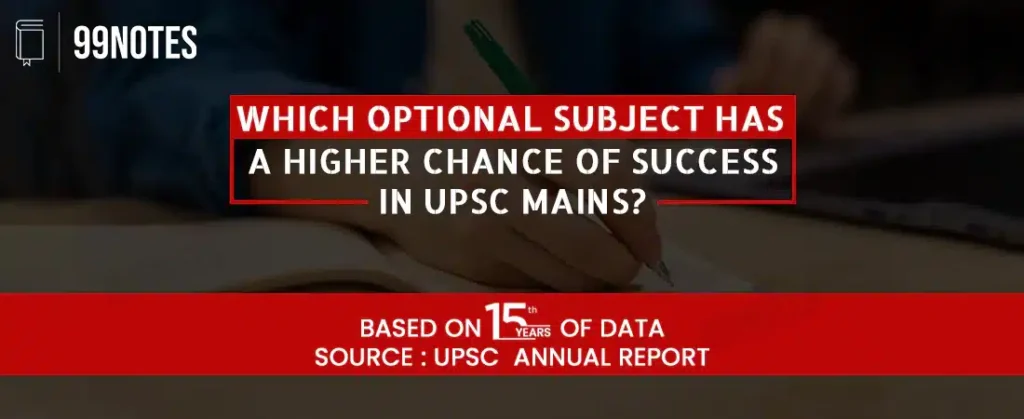
Which optional subject has a higher chance of Success in UPSC Mains?
Selection of an optional subject is an investment of valuable time and effort. Like each investment, it should be a good analytical exercise to note the potential returns.
Every year, the number of candidates who appear for the written examinations in the Mains are roughly 13 times the number of seats available for selection. Therefore, around 7.7% of all who write the Mains examination are recommended by UPSC for selection. However, many optional subjects are not able to achieve a success rate of 7% for many years. Therefore, these factors must be considered before choosing an optional subject.
In this article, we shall analyse the UPSC Annual reports since 2013 to answer the question of which Optional subject has a higher chance of securing a selection. Success Ratio, here, is defined as the percentage of candidates finally selected out of the total number of candidates who write the main examination.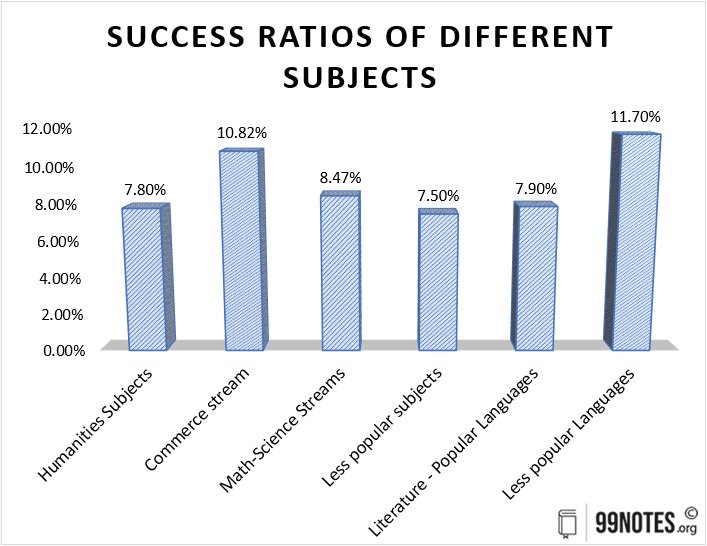
Figure 1: Success ratios of different subjects in UPSC 2019
Success Rates of Humanities subjects:
We see that humanities optional subjects have a lower rate of success than other streams (see fig. 1). However, it is interesting to note that not all optional subjects are equal. Those subjects which have a professional outlook have better overall rates of success.
For example, figure 2 shows that candidates having Law, Psychology, Anthropology and Sociology as optional subjects have a better chance of success. Whereas, Geography, History and Philosophy have given poor overall returns.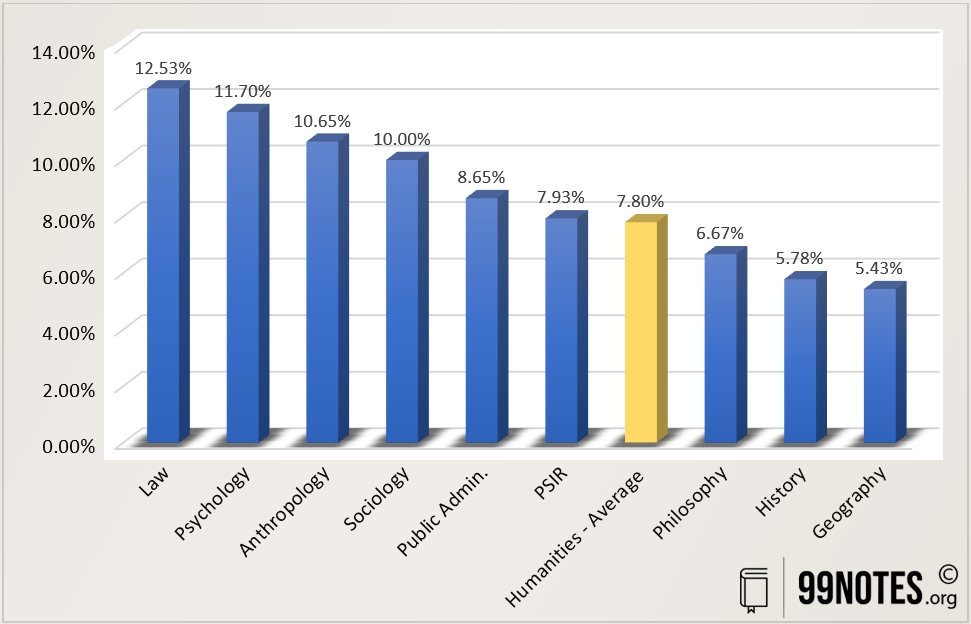
Figure 2: Average Success ratios (2013-19) of different Humanities optional subjects
These percentages are averages spread across six years from 2013 to 2019.
As shown in the figure below (fig. 3), subjects like Law and Psychology have performed better consistently. However, optional subjects like Philosophy and Geography have been performing poorly consistently (fig. 4).
The data from the final number of selected candidates indicates that UPSC seems to favour professional subjects over purely academic ones. This aspect would be clearer after analysing the Science and commerce stream subjects too.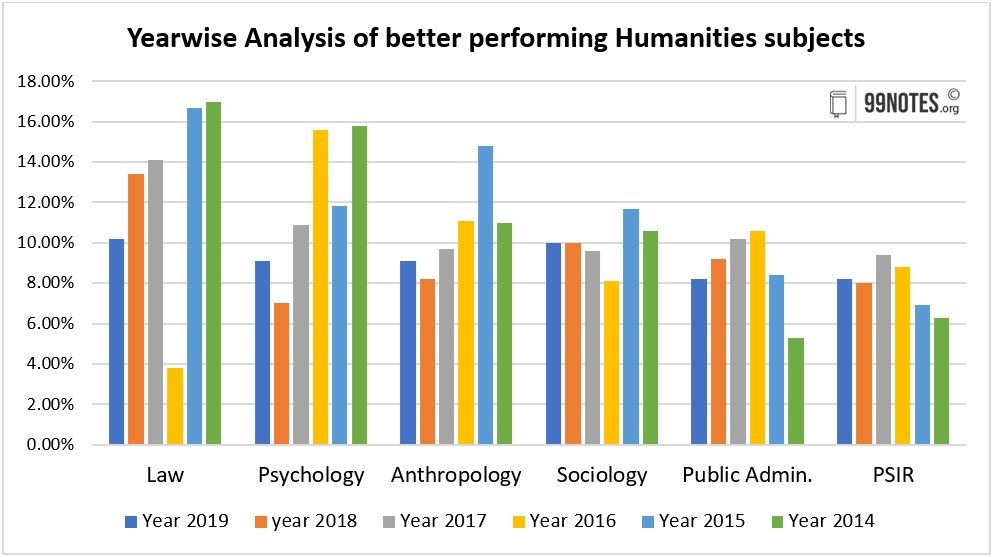
Figure 3: Success ratios of best Humanities optional subjects from 2013 to 2019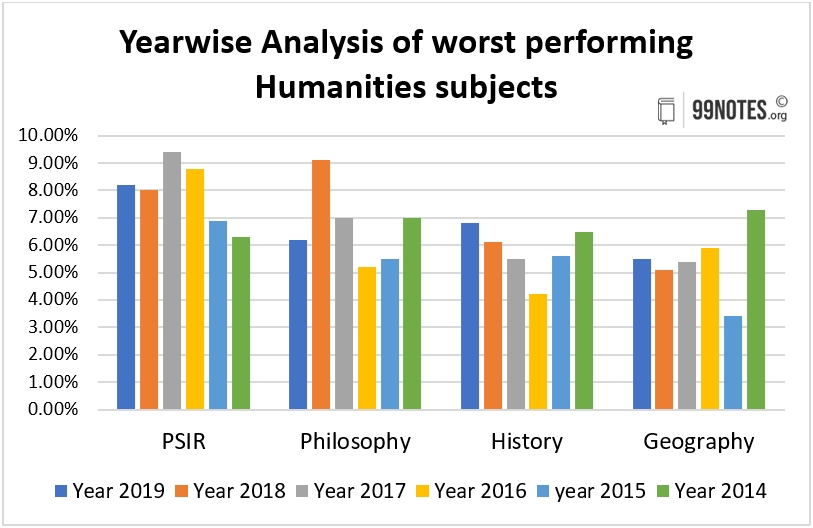
Figure 4: Success ratios of worst-performing Humanities optional subjects from 2013 to 2019
It is ironic that, like each year, in 2019, the most candidates wrote the mains paper with Geography as an optional subject, i.e. 1916 candidates, and yet it has had one of the worst success chances in recent years.
However, since optional papers like History, Geography and PSIR cover huge portions of General Studies, they lighten the overall burden of the candidates.
Success Rates of Commerce stream subjects:
The analysis of the last six years shows that commerce stream subjects have consistently been one of the best performing so far (fig. 5). It is in line with our understanding that UPSC favours professional subjects.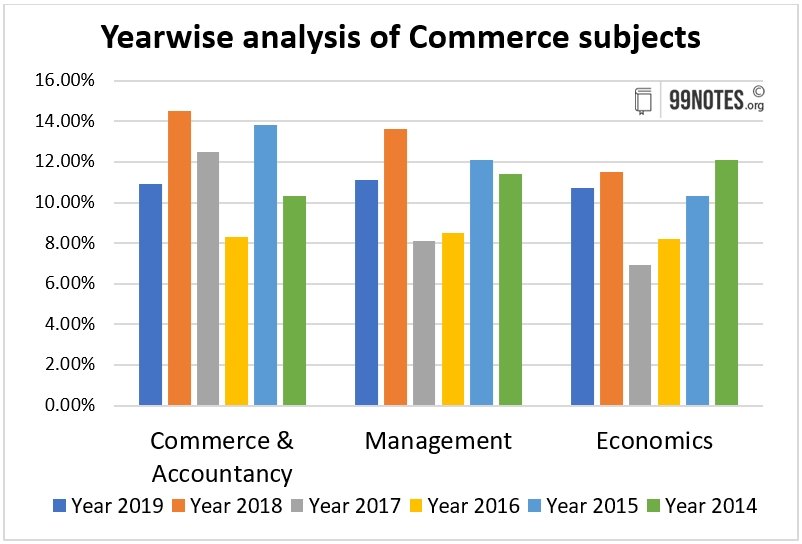
Figure 5: Success ratios of Commerce stream optional subjects from 2013 to 2019
Success Rates of Science stream subjects:
Science stream subjects have one of the best success ratios, as seen in figure 6 below: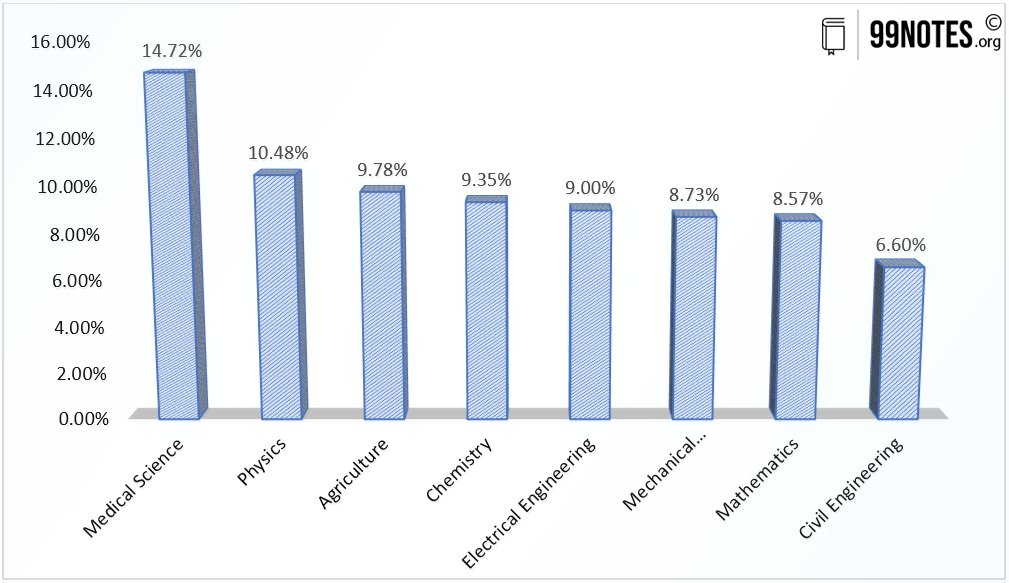
Figure 6: Success ratios of Science stream optional subjects from 2013 to 2019
Now, there are many interesting things to note here. Medical science is the best optional subject there, amongst the most popular choices, in terms of success rate. Therefore, doctors must always first explore the option of medical science.
For Engineering graduates, Physics, Chemistry and Mathematics are available choices apart from their respective engineering streams. UPSC has only three engineering streams available. These are Electrical, Mechanical and Civil engineering. Of these, only Civil engineering candidates have had a poor chance of success over the last few years. The rest of the optional subjects have given a consistently good performance.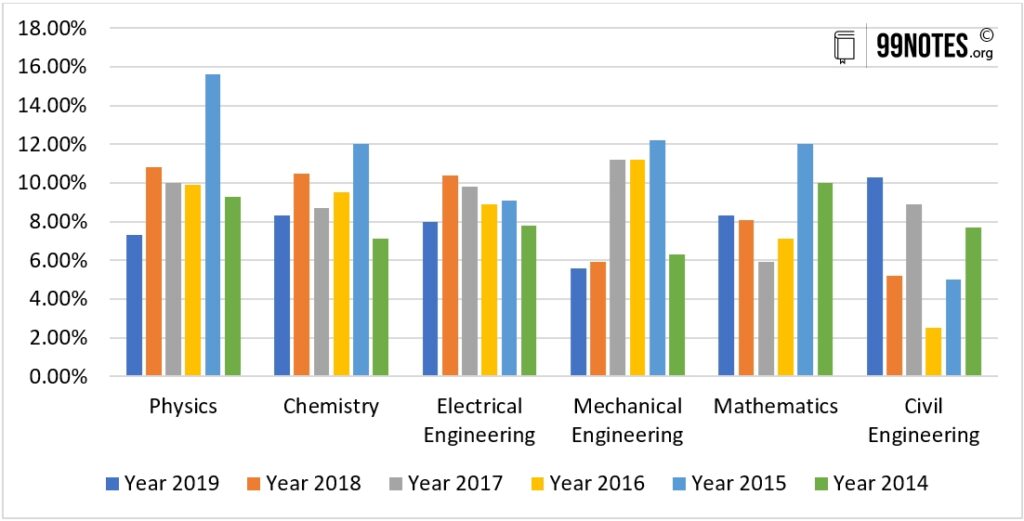
Figure 7: Success ratios of Engineering stream optional subjects from 2013 to 2019
Students who are looking for subjects related to Biology apart from medical science, Agriculture and Animal Husbandry & Veterinary sciences have been consistent performers (Fig. 8). These subjects give an additional advantage that these are also available for the forest service examination.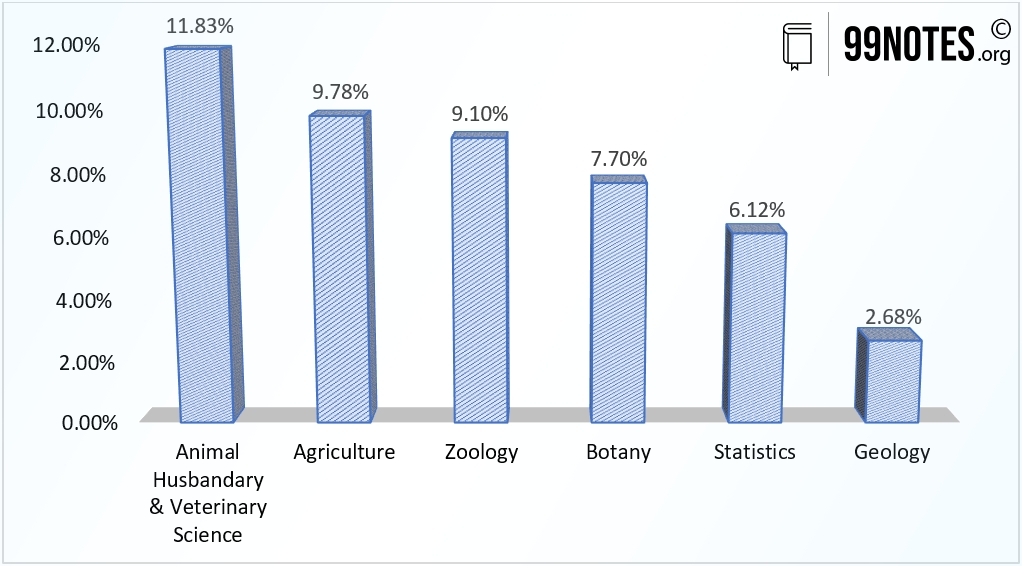
Figure 8: Success ratios of less popular science stream optional subjects from 2013 to 2019
Probably owing to the lack of material availability, Geology and Statistics have performed poorly consistently (Fig. 8). However, we must keep in mind that we have very little data to analyse Statistics. For example, only 2 candidates attempted Statistics optional in 2019.
Success Rates of Literature subjects:
Literature subjects show huge variation each year (fig. 9) because only a handful of candidates get selected each year. Therefore, it would be better to look at the averages over many years (fig. 10).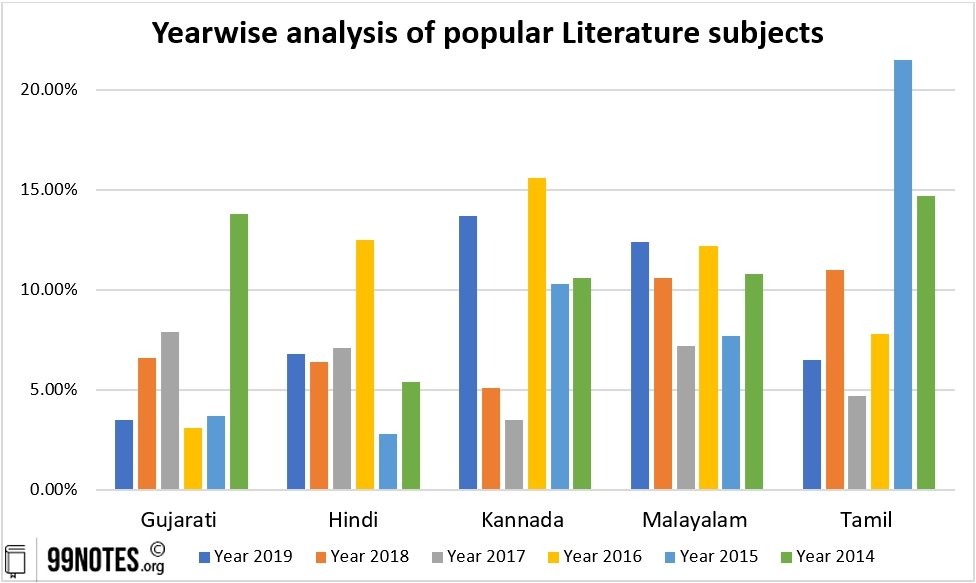
Figure 9: Yearly variations in the Popular Literature subjects from 2013 to 2019
Nevertheless, when we look at the averages, Literature of English, Kannada, Malayalam, Punjabi, Tamil and Urdu seem to be attractive choices (fig. 10).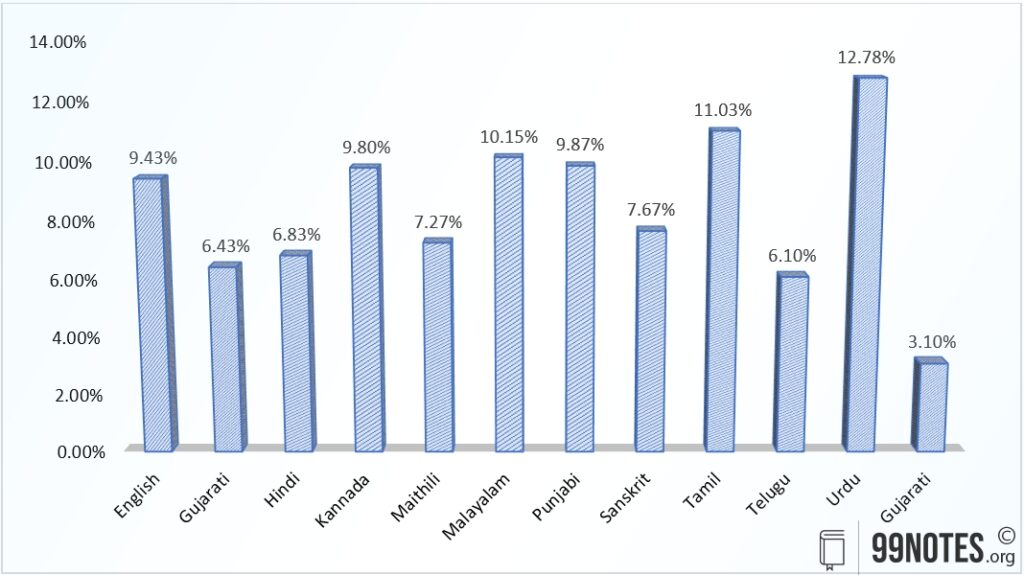
Figure 10: Yearly variations in the Popular Literature subjects from 2013 to 2019
Some even less popular literature subjects seem attractive. For example, Candidates from Sindhi and Santhali literature have had a success ratio of even 50% on average!
But in analysing these subjects, one must keep in mind that often these are the same lot of candidates who reattempt to improve their ranks for several years. Overall, these language subjects don’t have a good record.
|
Literature Optional Subject (with less than 10 people or so attempting each year) |
Total number of candidates in 6 years |
Total selections in 6 years |
|
Literature of Assamese Language |
21 |
1 |
|
Literature of Bengali Language |
21 |
3 |
|
Literature of Bodo Language |
2 |
2 |
|
Literature of Manipuri Language |
48 |
6 |
|
Literature of Marathi Language |
88 |
5 |
|
Literature of Nepali Language |
1 |
0 |
|
Literature of Oriya Language |
30 |
2 |
|
Literature of Sindhi (Devanagari) Language |
15 |
4 |
|
Literature of Sindhi (Arabic Script) Language |
7 |
3 |
|
Literature of Santhali Language |
4 |
3 |
|
Literature of Dogri Language |
2 |
0 |
Conclusion: The above analysis suggests that it would be wise if a candidate goes for a professional subject rather than a purely academic one. But if that is not possible, figure 2 can be a good guide for choosing an optional subject.

